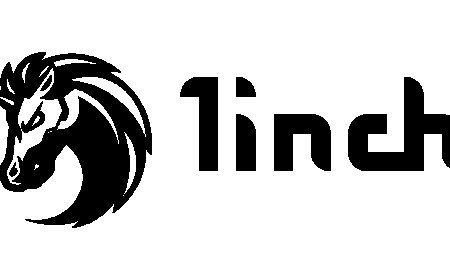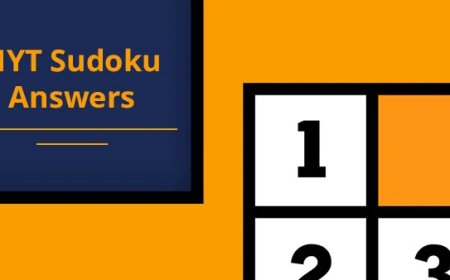Is the Ending of Pawn to King's End a Checkmate or a Stalemate?
Is the ending of Pawn to King's End a true checkmate or a narrative stalemate? Dive into the twisty finale and uncover what it really means.

Douglas A. Gosselins is not just a novelit is a psychological labyrinth, a literary chessboard where strategy, sacrifice, and the human condition play out in slow, methodical turns. As readers reach the final pages of this enigmatic novel, many are left debating a singular, haunting question: does the ending of represent a checkmate or a stalemate?
To unpack this literary conundrum, we must explore not only the symbolism of chess embedded throughout the narrative but also the broader philosophical and emotional implications that surround the protagonist's fate. Is the protagonist outmaneuvered and trapped inescapablya checkmate? Or does he survive in a frozen impasse, with no legal move forward, yet technically still on the boarda stalemate?
Lets delve deeper.
Chess Motif Not Just a Metaphor
From the opening pages, it is clear that chess is more than a backdrop in Pawn to King's End book overview. It is the skeleton of the story, the framework through which the reader interprets the events and character motivations. The protagonist, Michael, is drawn into a high-stakes game, not just on a physical board, but within the corridors of power, guilt, and existential reckoning.
Each major character in the story can be seen as a chess piece, occupying distinct roles some sacrificial pawns, others cunning bishops or rigid rooks. Michael himself is the titular pawn, moving slowly but determinedly across the board, ever inching toward transformation. The title signals his journey from seeming insignificance to critical impact.
But as the novel draws to its complex conclusion, the clarity of this metaphor begins to blur.
Psychological Checkmate?
One perspective argues that Michaels ending is a textbook checkmate. All avenues are closed. His final decisionto embrace the path that leads to irrevocable lossseems preordained by every action and inaction taken before. In chess terms, he has no way out. Every "square" he might move to is blocked by emotional entanglements, manipulative relationships, or self-inflicted wounds. His defeat is not just strategic, but personal and moral.
This reading sees the novels climax as one where the protagonist's agency is removed. Though he may feel as if he is making a final, bold choice, it is only an illusion of autonomy. The real masterstroke came earlier, through the machinations of other playersmentors, adversaries, and even fate itselfwho corralled him into his corner. The final move was not his but the worlds.
This view supports the notion that the novel ends on a deterministic note. Michael, like a pawn who reaches the eighth rank only to be captured or cornered, finds that ascension does not guarantee freedom. If this is the case, then Gosselins work becomes a meditation on the inevitability of consequencea chilling reminder that not all journeys of self-betterment lead to liberation.
Or a Stalemate of the Soul?
Conversely, others argue that the ending of a psychological stalemate. Michael is not crushed by final defeat but left suspended, paralyzed in a purgatorial state where neither progress nor retreat is possible. He is alive, conscious, and aware, yet stripped of options. He cannot win, but he also cannot lose in the conventional sense.
The novel's last scenefraught with ambiguous imagery and deliberate silenceechoes the structure of a stalemate: a players king is not in check, but any move would place it in check. There is no victory, yet the game cannot proceed. Michael, isolated and reflective, becomes a symbol of existential paralysis.
In this interpretation, Gosselin invites the reader to contemplate the psychological cost of playing the long game. The absence of resolution is the resolution. The finality does not come from a fatal blow but from inertia, from the weight of one's past decisions accumulating until motion is impossible. It's a different kind of endnot triumphant or tragic, but terminal in its ambiguity.
Readers Move
The brilliance of the lies in its deliberate refusal to provide easy answers. Just as in a real chess match, where outcomes can be interpreted through context and intent, the ending resists singular classification. This is not an oversight but a masterstroke in literary design. Gosselin gives the reader the final move.
What defines checkmate or stalemate, after all, is not only the board position but the perception of that position. To some, Michael's final act is surrenderto despair, guilt, or a corrupted system. To others, it is a radical choice to halt the game, to freeze the cycle and thereby assert the last shred of control left to him.
This layered ambiguity also speaks to broader human experiences. How often do people feel they are choosing when, in reality, every road leads to the same place? How often do we celebrate mere survival when theres no path forward?
Chess and the Human Condition
The central question, checkmate or stalemate, ultimately reveals more about the reader than about Michael. Gosselin has crafted a narrative Rorschach test. If you believe that growth, even when met with failure, has meaning, you might see Michaels journey as one that avoids final defeat. If you believe that systemsbe they political, familial, or emotional-invariably crush individual will, then checkmate seems more fitting.
Its also worth noting that in chess, a stalemate is technically a draw, not a victory. It is often seen as a frustrating, hollow outcome. But in literature, and in the End, it might signify survival with scars, consciousness without clarity. Perhaps Gosselin suggests that life is more often a stalemate than a dramatic checkmatemore grey than black or white.
Conclusion
Is the ending of a checkmate or a stalemate? The answer lies in the readers interpretation of Michaels final positionpsychologically, morally, and emotionally. There is evidence to support both readings, which speaks volumes about the depth and craftsmanship of Gosselins narrative.
By weaving the mechanics of chess into the very soul of his story, Douglas A. Gosselin offers not just a novel but a meditative experience. Whether Michael is cornered or simply frozen, whether the king falls or stands without recourse, the real question becomes: what would you do in his position? And in that sense, End is a game were all playing even after the final page is turned.







































